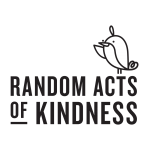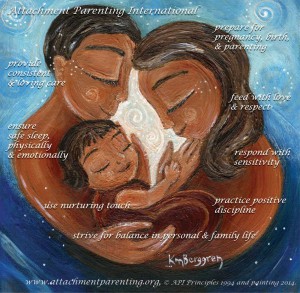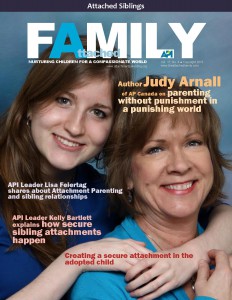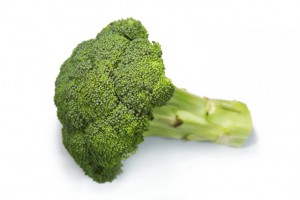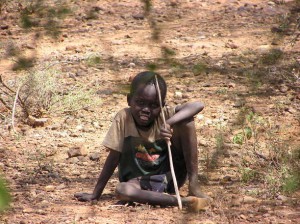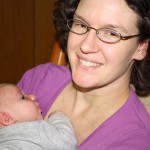 2015 was a full year! Attachment Parenting International (API) received hundreds of submissions for its publications from parents and professionals around the world, which were in turn read by the tens of thousands of parents in the global API community and shared among their networks beyond API. That’s a lot of families receiving support in Attachment Parenting (AP)!
2015 was a full year! Attachment Parenting International (API) received hundreds of submissions for its publications from parents and professionals around the world, which were in turn read by the tens of thousands of parents in the global API community and shared among their networks beyond API. That’s a lot of families receiving support in Attachment Parenting (AP)!
Let’s take a look back at 2015 through the highlights of API’s content on APtly Said and The Attached Family:
January
 “Co-parenting Basics” — API Leader and mother of 2, Lisa Feiertag of the USA explains co-parenting in shared custody, and how this looks when paired with Attachment Parenting. Lisa, and April C, go on to share their personal stories of how co-parenting has worked for their families. Also featured in The Attached Family‘s “Parenting Creatively” issue:
“Co-parenting Basics” — API Leader and mother of 2, Lisa Feiertag of the USA explains co-parenting in shared custody, and how this looks when paired with Attachment Parenting. Lisa, and April C, go on to share their personal stories of how co-parenting has worked for their families. Also featured in The Attached Family‘s “Parenting Creatively” issue:
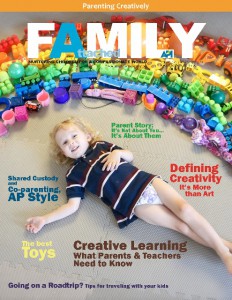 API Leader and mother of 2, Jamie Birdsong of New York, USA, gives tips of how she and her children were able to keep attachment in mind while taking a 2-week, cross-country road trip.
API Leader and mother of 2, Jamie Birdsong of New York, USA, gives tips of how she and her children were able to keep attachment in mind while taking a 2-week, cross-country road trip.- Art college professor and mother of 2, Carolina Blatt-Gross of Georgia, USA, offers ideas on how to enhance learning both at home and in the classroom.
- Psychologist Daria Brezinski of Virginia, USA, offers considerations in choosing toys regarding child development.
- API Leader and mother of 3, Rita Brhel of Nebraska, USA, defines creativity.
 “The Dark Side of Favorites” — Life coach and mother of 1, Miriam Katz of Massachusetts, USA, encourages parents to not pressure their children into choosing a favorite of anything:
“The Dark Side of Favorites” — Life coach and mother of 1, Miriam Katz of Massachusetts, USA, encourages parents to not pressure their children into choosing a favorite of anything:
“Suddenly my child, who’d embraced her surroundings with the wonder we all aspire to, had somehow become jaded. For her world had categories. And these categories not only elevated some things — the effect we’d anticipated — but they also made others worse.”
 “Parent-child Conflict Resolution” — Actress and mother of 1, Elisa Llamido of Florida, USA, shares her conversation with her son after he witnessed another mother not using positive discipline with her child:
“Parent-child Conflict Resolution” — Actress and mother of 1, Elisa Llamido of Florida, USA, shares her conversation with her son after he witnessed another mother not using positive discipline with her child:
“I realized that to Jason, and the other little witness, this scene made absolutely no sense. They put themselves in the other boy’s shoes and couldn’t see any reason why the person who was supposed to love and care for him suddenly turned mean.”
 “A Nod to My Husband” — Mother of 2, Katelynne Eid of Connecticut, USA, gives a tribute to her husband:
“A Nod to My Husband” — Mother of 2, Katelynne Eid of Connecticut, USA, gives a tribute to her husband:
“Because of him, they will have a childhood filled with snowball fights and dance parties, board games and movie nights. But more importantly, they will have a childhood filled with unconditional love and secureity, a childhood that teaches them that all their dreams can become realities.”
 “Parents Need to Be the Compass Point” — AP educator, mother of 6 and grandmother of 14, Shoshana Hayman of Israel argues cultural assumptions about raising teens:
“Parents Need to Be the Compass Point” — AP educator, mother of 6 and grandmother of 14, Shoshana Hayman of Israel argues cultural assumptions about raising teens:
“We need to nurture this connection and make it easy for our teenagers to continue orienting to us, as they navigate the experiences in their lives that are often characterized by high drama, social confusion and immature perspective.”
February
 “Loving One Another in Anger” — API Leader and mother of 2, Leyani Redditi of Georgia, USA, shared how she worked through a moment of frustration with her children:
“Loving One Another in Anger” — API Leader and mother of 2, Leyani Redditi of Georgia, USA, shared how she worked through a moment of frustration with her children:
“This is my chance to change the cycle. This is my chance to do it differently. If I really believe that how I deal with conflict helps my children learn to deal with conflict, then this moment is important.”
 “Was Attachment Parenting Worth It?” — API Board of Directors member and mother of 3, Camille North of Texas, USA, reflects back on her parenting journey:
“Was Attachment Parenting Worth It?” — API Board of Directors member and mother of 3, Camille North of Texas, USA, reflects back on her parenting journey:
“So here we are looking at the beginning of an end: The beginning of his adulthood, as a strong, confident, self-assured man. And the end of the difficulties of a childhood with a rough start, a complicated middle and a promising finish. I stare at the back of his head, with his ginger hair, and he speaks to me in his dad’s voice, ‘Mom, do you think this is good enough?’ Oh yeah, I do.”
 “Someday You Will Miss This” — API Leader and mother of 3, Kelly Shealer of Maryland, USA, focuses on reframing a sleepless night with her baby into a fond memory to reflect back on:
“Someday You Will Miss This” — API Leader and mother of 3, Kelly Shealer of Maryland, USA, focuses on reframing a sleepless night with her baby into a fond memory to reflect back on:
“I really feel like I can’t handle this much longer. I just want to sleep. Then suddenly a thought pops into my mind: ‘Someday you will miss this.’ I know that it’s true. I won’t miss this feeling of being so, so tired, but I will miss having this sweet, warm baby who loves me more than anything. I try to remember that.”
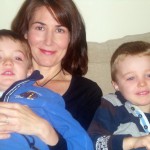 “Writing for Balance” — Mother of 2, Lisa Lord of Ireland explains how she uses writing to strive for life balance while also unlocking problem-solving skills to parenting challenges. Also included in The Attached Family‘s “Inspired Parents” issue online:
“Writing for Balance” — Mother of 2, Lisa Lord of Ireland explains how she uses writing to strive for life balance while also unlocking problem-solving skills to parenting challenges. Also included in The Attached Family‘s “Inspired Parents” issue online:
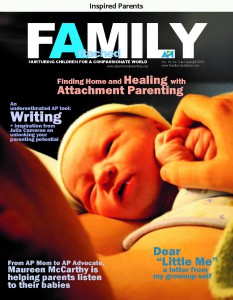 Author and creativity instructor, Julia Cameron gives guidance in untapping creativity in parenting through habits of optimism and gratitude found in creative pursuits and other enjoyable activities.
Author and creativity instructor, Julia Cameron gives guidance in untapping creativity in parenting through habits of optimism and gratitude found in creative pursuits and other enjoyable activities.- Author and mother of 1, New Zealand-born Jessica Talbot of Argentina describes how Attachment Parenting healed her emotional childhood wounds and shares an excerpt from her book, Picaflor, detailing that journey.
- AP educator, mother of 1 and grandmother of 2, Maureen McCarthy of Indiana, USA, shares her journey from parent to parent educator to the founder of a nonprofit AP organization.
March
 “Saying ‘No’ the Attachment Parenting Way” — API Leader and mother of 1, Stephanie Petters of Georgia, USA, reminds herself that parents have a right to say “no” to their children, just as children have the right to feel unhappy about that:
“Saying ‘No’ the Attachment Parenting Way” — API Leader and mother of 1, Stephanie Petters of Georgia, USA, reminds herself that parents have a right to say “no” to their children, just as children have the right to feel unhappy about that:
“As the parent, our job is to allow them these emotions while setting limits.”
 “I’m Screaming at the Top of My Voice! Can You Hear Me?” — Babywearing specialist and mother of 2, Sandy Gordon Frankfort shares about the gift of Attachment Parenting:
“I’m Screaming at the Top of My Voice! Can You Hear Me?” — Babywearing specialist and mother of 2, Sandy Gordon Frankfort shares about the gift of Attachment Parenting:
“If only we each had this gift from another, I truly believe, things would be different. We would be different. We wouldn’t be desperately longing for the kind of connection to nurture our soul in ways that only one where someone truly hears us, provides.”
April
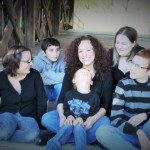 “15 Years” — API Leader and single, adoptive mother of 5, Alissa Tschetter-Siedschlaw of Iowa, USA, reflects on her last 15 years as a volunteer in supporting local families:
“15 Years” — API Leader and single, adoptive mother of 5, Alissa Tschetter-Siedschlaw of Iowa, USA, reflects on her last 15 years as a volunteer in supporting local families:
“My parenting was evolving, and I longed for a group where I could speak more openly and find honest and straightforward, yet gentle and kind friends, while offering the same to others. I wanted us to be the kind of people you trust around your children, because you know we believe in nurturing and validating each other and we want the best for all of our kids collectively.”
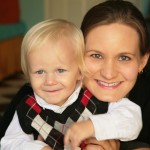 “Maintaining Connection Through Long Separations” — API Leader and mother of 3, Elizabeth Pavlinsky of the USA shares tips for families to stay connected when a parent for military training or deployment:
“Maintaining Connection Through Long Separations” — API Leader and mother of 3, Elizabeth Pavlinsky of the USA shares tips for families to stay connected when a parent for military training or deployment:
“Use fun, versatile counting games to provide a visual tool that demonstrates the passing of time for younger children. This can be as simple as a calendar. Children can cross out the days as they pass. Another idea is that before the separation, the whole family can build a paper chain with one link for each day the family is apart. The person going away could write messages on some or all of the paper links as surprises for the family.”
 “Nurturing Touch Restores Security in Adoptive Families” — Mother of 2, Sarah Kuc of the USA shares how nurturing touch is a crucial part of her relationship with her adopted sons:
“Nurturing Touch Restores Security in Adoptive Families” — Mother of 2, Sarah Kuc of the USA shares how nurturing touch is a crucial part of her relationship with her adopted sons:
“When words are difficult, as is the case with newborns and young children, nurturing touch transcends language while still communicating security and love.”
May
 “Get Inspired with This Fun Children’s Mindfulness Exercise” — Clinical psychologist, mindfulness instructor, children’s yoga instructor, Inga Bohnekamp of Canada introduces parents to a simple mindfulness activity to do with their children during Screen-Free Week:
“Get Inspired with This Fun Children’s Mindfulness Exercise” — Clinical psychologist, mindfulness instructor, children’s yoga instructor, Inga Bohnekamp of Canada introduces parents to a simple mindfulness activity to do with their children during Screen-Free Week:
“Let this be a flowing process. Get creative and have fun. You don’t need to come up with a pre-drafted elaborate choreography before you present this activity to your kids. Rather, have the whole family be part of the process: inventing, creating, trying out, inspiring and surprising each other as you go.”
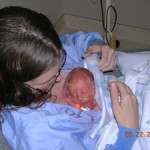 “Kangaroo Care for Every Baby” — NuRoo details the benefits, history and how-to’s to safely do Kangaroo Care with your baby — whether full-term, preterm or in the NICU:
“Kangaroo Care for Every Baby” — NuRoo details the benefits, history and how-to’s to safely do Kangaroo Care with your baby — whether full-term, preterm or in the NICU:
“The doctors witnessed a grandmother in a remote village holding her grandchild, under layers of clothing and wraps, tucked between her breasts on her bare skin. They commented that it was like a kangaroo carrying her joey in a pouch. They were shocked to find the babies in this village thriving! Returning back to work, they implemented what they saw at the hospital. This became an ‘ah-ha’ moment for the rest of the world.”
 “Messy Motherhood” — Mother of 1, Jillian Amodio of the USA thanks her mother for teaching her that a happy home is sometimes a little messy. Also included in the “Inspired Mothers” special celebration on APtly Said:
“Messy Motherhood” — Mother of 1, Jillian Amodio of the USA thanks her mother for teaching her that a happy home is sometimes a little messy. Also included in the “Inspired Mothers” special celebration on APtly Said:
- API Leader and mother of 2, Leyani Redditi of Georgia, USA, shares a tribute to her children for shaping her into a mother she’s proud of.
- API Leader and mother of 1, Alexis Schrader of California, USA, shares how giving her daughter presence helps her process her mixed emotions surrounding her toddler’s budding independence.
- API Leader and co-parenting mother of 2, Lisa Feiertag of the USA shares how Attachment Parenting not only helped to heal her childhood emotional wounds but also gave her own mother the space and tools to heal hers as well.
- API Leader and mother of 3, Kelly Shealer of Maryland, USA, shares how motherhood gives her a sense of balance, more so than always getting the dishes washed.
- Mother of 2, Katelynne Eide of Connecticut, USA, encourages all mothers to support one another.
- Adoptive mother of 2, Sarah Kuc of the USA thanks her sons’ birth mothers for granting her the gift of motherhood.
 “It’s Alright That You Need Me” — Mother of 1, Yvette Lamb of the UK shares a letter she wrote to her baby, assuring her that needing is natural and good:
“It’s Alright That You Need Me” — Mother of 1, Yvette Lamb of the UK shares a letter she wrote to her baby, assuring her that needing is natural and good:
“I want to remind everybody that these are qualities, not inadequacies. These natural urges ensure protection, security, safety. They are a big part of love and trust. You trust me enough to depend on me, to allow me to see your need. It is alright to need people. It is alright to rely on them.”
 “Screentime Can Be Family Time” — API Leader and mother of 1, Candice Garrison of Tennessee, USA, explains what to keep in mind when it comes to parenting and screentime:
“Screentime Can Be Family Time” — API Leader and mother of 1, Candice Garrison of Tennessee, USA, explains what to keep in mind when it comes to parenting and screentime:
“I think the most important part of technology use is finding balance — and not falling into the trap of using screens as a distraction when our little ones are seeking, or in need of, connection.”
June
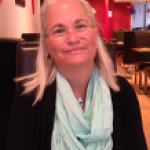 “Making a Difference a Leader at a Time” — API announces the Reedy Hickey Scholarship Fund to support API Leaders and Leader Applicants:
“Making a Difference a Leader at a Time” — API announces the Reedy Hickey Scholarship Fund to support API Leaders and Leader Applicants:
“Reedy is an inspiration to us all as a tireless advocate for Attachment Parenting, and we are privileged to be able to honor her in this lasting way.”
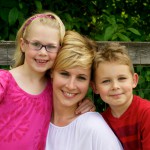 “How Secure Sibling Attachments Happen” — API Leader, positive discipline educator and mother of 2, Kelly Bartlett of Oregon, USA, explains the 6 stages of attachment as they apply to siblings. Also included in The Attached Family‘s “Attached Siblings” issue online:
“How Secure Sibling Attachments Happen” — API Leader, positive discipline educator and mother of 2, Kelly Bartlett of Oregon, USA, explains the 6 stages of attachment as they apply to siblings. Also included in The Attached Family‘s “Attached Siblings” issue online:
 “Expecting Your First Baby? Talk About Parenting Now, Before Baby Arrives” — API Leader, marriage and family therapist, and mother of 3, Patricia Mackie of Illinois, USA, explains how new parents can prepare their marriage for life with a baby:
“Expecting Your First Baby? Talk About Parenting Now, Before Baby Arrives” — API Leader, marriage and family therapist, and mother of 3, Patricia Mackie of Illinois, USA, explains how new parents can prepare their marriage for life with a baby:
“There is a never a better time to get to know your partner or spouse on a deeper level than when you are expecting a child. In every family are 2 very separate adults, each with different upbringings, different world views and different experiences. The time and energy you have for intimate conversations now may be missing for years once the baby is born. Before baby comes is the time when you can think clearly and begin to look at some of your childhood wounds, identify areas that may be difficult as you raise your own children, share your insights with your partner and become a team as you enter the uncharted waters of parenthood.”
 “This Father’s Day: Dads, Talk About Being a Father” — API Leader and mother of 3, Rita Brhel of Nebraska, USA, looks at the cultural view of attached, involved fathering and urges fathers to speak out about their changing roles in the family:
“This Father’s Day: Dads, Talk About Being a Father” — API Leader and mother of 3, Rita Brhel of Nebraska, USA, looks at the cultural view of attached, involved fathering and urges fathers to speak out about their changing roles in the family:
“Talk about being a father. Talk about what it means to you to be attached to your children, to be involved in their lives, to be present in their moments. Dads, talk about Attachment Parenting and why it matters to you, as a father, to raise your children with a secure attachment. Start advocating for your role in the family.”
July
 “The Sunrise of Balance” –API Leader and mother, Kendrah Nilsestuen of Colorado, USA, shares how she followed her son’s lead in regaining balance in her life:
“The Sunrise of Balance” –API Leader and mother, Kendrah Nilsestuen of Colorado, USA, shares how she followed her son’s lead in regaining balance in her life:
“To this day, years later, I still carry those words with me: “Mama, the sky! It’s so colorful!” — six words encompassing the gentle reminder to move a little slower, appreciate a little more and pause long enough to enjoy the moments of delight our days have to offer us.”
 “Bringing Peace to Sibling Rivalry” — AP educator and mother of 2, Naomi Aldort of Washington state, USA, offers an idea of supporting both siblings during a conflict:
“Bringing Peace to Sibling Rivalry” — AP educator and mother of 2, Naomi Aldort of Washington state, USA, offers an idea of supporting both siblings during a conflict:
“We don’t have to intervene if the children seem to resolved their struggles, and no one is hurt. But we want to prevent setups that tend to bring on rivalry. And we must be turned-in, so when we are needed, we can show up promptly. Once we enter, we must not exacerbate the division but bring connection and empathy.”
August
 “Historical Trauma, Breastfeeding and Healing” — API reports on a presentation by Camie Jae Goldhammer, a clinical social worker, lactation consultant and mother of 2 from Washington state, USA, during which she discussed the effect of historical trauma on breastfeeding rates among Native Americans. Also included in APtly Said’s World Breastfeeding Week and Breastfeeding Month celebrations:
“Historical Trauma, Breastfeeding and Healing” — API reports on a presentation by Camie Jae Goldhammer, a clinical social worker, lactation consultant and mother of 2 from Washington state, USA, during which she discussed the effect of historical trauma on breastfeeding rates among Native Americans. Also included in APtly Said’s World Breastfeeding Week and Breastfeeding Month celebrations:
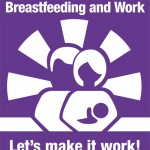 API gives a tribute to a young Martha Sears and the late Viola Lennon, one of La Leche League’s seven cofounders and coauthor of The Womanly Art of Breastfeeding.
API gives a tribute to a young Martha Sears and the late Viola Lennon, one of La Leche League’s seven cofounders and coauthor of The Womanly Art of Breastfeeding.- Attachment Parenting educator, chiropracter and mother of 1, Linda Folden Palmer of California, USA, provides an excerpt from her new book, Baby Poop, on how breastmilk affects baby’s gut health not only through childhood but long into adulthood.
- Mother, Janell Robisch of Virginia, USA, offers support to extended breastfeeding mothers as well as shares her child-led weaning story, excerpted from her book, To Three and Beyond.
- Mother of 1, Kate Frederick of New Hampshire, USA, details the costs to employers for not allowing women to breastfeed while also sharing about her experience of writing, and testifying for, state legislation to support working breastfeeding mothers.
- API Leader, WIC Breastfeeding Peer Counselor and mother of 3, Rita Brhel of Nebraska, USA, reports on her impressions of a local Big Latch On event.
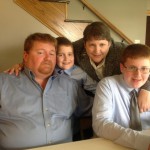 “He Just Wants to be Held” — Mother of 2, Julinda Adams of Indiana, USA, reflects on how a stranger’s comment in a grocery store helped calm her, as a new mother, and get her in touch with both her baby’s emotional needs and her own instincts:
“He Just Wants to be Held” — Mother of 2, Julinda Adams of Indiana, USA, reflects on how a stranger’s comment in a grocery store helped calm her, as a new mother, and get her in touch with both her baby’s emotional needs and her own instincts:
“The images we see in the media often show a detached form of parenting. Babies only appear when needed for the story line, or even as props. On the screen, they are quiet and require minimal interaction, unless the script calls for something else. When they are not in a scene, they are out of sight and no thought is given to them. So the baby lying quietly until the parents are ready to interact seems normal.”
September
 “Smartphones and Parenting” –Teacher and mother, Kim Allsup of Massachusetts, USA, explores the possibility that smartphones are hijacking our attachment instincts:
“Smartphones and Parenting” –Teacher and mother, Kim Allsup of Massachusetts, USA, explores the possibility that smartphones are hijacking our attachment instincts:
“It is not that the baby looks like a smartphone, but that our inner experience of ongoing awareness along with bursts of the bonding hormone during connection is similar whether we carry and connect with a baby or a socially connected smartphone.”
 “Attachment Grandparenting: What’s Your Role?” — API cofounder, coauthor of Attached at the Heart and mother, Lysa Parker of Tennessee shares her experience about becoming a grandma:
“Attachment Grandparenting: What’s Your Role?” — API cofounder, coauthor of Attached at the Heart and mother, Lysa Parker of Tennessee shares her experience about becoming a grandma:
“We, at API, often talk about the ripple effect we can create by the little changes each of us makes in our families and in our communities. I felt such pride for Morgan that her own breastfeeding experience gave her such courage and conviction to help another mother. No doubt the ripple effect continues in other ways.”
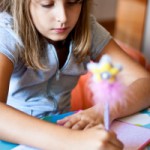 “Stay Involved in Your Child’s School Life” — Teacher and single mother of 1, Michelle Calfee of Tennessee, USA, gives ideas of how parents can stay involved with their child’s life at school when not homeschooled:
“Stay Involved in Your Child’s School Life” — Teacher and single mother of 1, Michelle Calfee of Tennessee, USA, gives ideas of how parents can stay involved with their child’s life at school when not homeschooled:
“Talk to your child about what they are learning in school. Your involvement does not mean you have to understand the content or know how to do the work your child is doing. But you can ask your child what they ware working on in school. When you do this, you are sending your child a message that what they are doing is important to you.”
October
 “Balancing Work and Family Takes Creativity, Flexibility and a Village” — API Leader and mother of 1, Megan Bell of Illinois, USA, share her story of how she balances her toddler’s attachment needs with her singing career. Also included in APtly Said’s coverage of AP Month 2015:
“Balancing Work and Family Takes Creativity, Flexibility and a Village” — API Leader and mother of 1, Megan Bell of Illinois, USA, share her story of how she balances her toddler’s attachment needs with her singing career. Also included in APtly Said’s coverage of AP Month 2015:
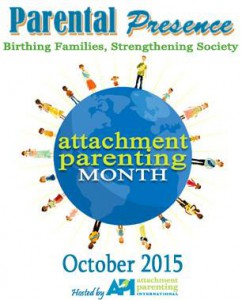 Mother of 4, Kelly Johnson of Florida, USA, wrote Daily Tips for parents to focus on parental presence through the month.
Mother of 4, Kelly Johnson of Florida, USA, wrote Daily Tips for parents to focus on parental presence through the month.- Mother of 1, Yvette Lamb of the UK helps us remember that our challenges in providing parental presence in the early years are but moments we will remember fondly and that help shape our child’s perception of what love is.
- API cofounder, coauthor of Attached at the Heart, AP educator and mother, Barbara Nicholson of Alabama, USA, explores creative ways that parents balance their family and professional lives in order to give priority to parental leave.
- AP educator, API Leader and mother of 2, Tina McRorie of California, USA, shares how prioritizing her children’s attachment needs shaped her career.
- API Leader and mother of 3, Rita Brhel of Nebraska, USA, shares her work-at-home story.
- API introduces Kim John Payne of Massachusetts, USA, a parent educator and educator consultant, who gave an API Teleseminar on “Simplicity Parenting” — recordings are available for just $9!
- API thanks all the partners and sponsors of AP Month 2015 for recognizing that parental presence isn’t a privilege so much as a necessity.
- API Leader and mother of 2, Artimesia Yuen of New York City, USA, presents research to help parents and professionals continue discussions in their communities on the importance of parental leave and the incredible value of maximizing parental presence in early childhood.
November
 “The Dynamic of Disappearing Dads” — AP educator, author of the book, Why Dads Leave, and mother of 1, Meryn Callander of Australia discusses why fatherhood can be difficult for some men and how their partners can help them navigate the growing family’s changing attachment dynamics. Also included in The Attached Family‘s “Nurturing Peace” issue online:
“The Dynamic of Disappearing Dads” — AP educator, author of the book, Why Dads Leave, and mother of 1, Meryn Callander of Australia discusses why fatherhood can be difficult for some men and how their partners can help them navigate the growing family’s changing attachment dynamics. Also included in The Attached Family‘s “Nurturing Peace” issue online:
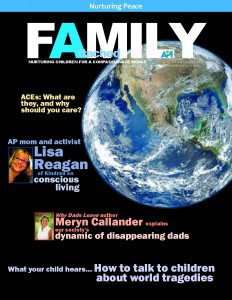 API Resource Advisory Council member, AP journalist and mother of 1, Lisa Reagan of Virginia, USA, shares her parenting journey as it intersected with the conscious living movement.
API Resource Advisory Council member, AP journalist and mother of 1, Lisa Reagan of Virginia, USA, shares her parenting journey as it intersected with the conscious living movement.- Community psychologist and mother, Tamara Brennan of Mexico explains the importance of protecting our children’s minds from the harsh realities of our world, like famine and disasters, and how to talk to our children about tragedies when needed.
- Journalist Jane Stevens of California, USA, defines ACEs and how childhood trauma affects lifelong health, emotionally and physically.
 “The Root of Bullying is Shame” — Clinical psychologist Shefali Tsabary of New York, USA, discusses shame in our society:
“The Root of Bullying is Shame” — Clinical psychologist Shefali Tsabary of New York, USA, discusses shame in our society:
“Whenever my daughter exhibits less than desirable behavior, I ask what this is saying about me as a parent. Children are a mirror of our own unresolved issues.”
 “I Am a Present Father” — API Leader and father of 2, Thiago Queiroz of Brazil shares about how Attachment Parenting helped him to find his way as a new father:
“I Am a Present Father” — API Leader and father of 2, Thiago Queiroz of Brazil shares about how Attachment Parenting helped him to find his way as a new father:
“AP helped to show me how I could be the father I wanted to be. AP guided me to where I could find my place as an active and conscious father — an attached father. I obviously can’t give birth or breastfeed, but I can foster the secure attachment I want to build with my sons through a whole lot of other actions.”
 “Getting Through the Paris Attacks With an Old Neighbor” — API Leader and mother of 1, Alexis Schrader of California, USA, reminds us of children’s TV personality Mr. Fred Rogers’ wisdom:
“Getting Through the Paris Attacks With an Old Neighbor” — API Leader and mother of 1, Alexis Schrader of California, USA, reminds us of children’s TV personality Mr. Fred Rogers’ wisdom:
“Mr. Rogers reminded me of why I chose Attachment Parenting in the first place: to raise empathic children who will be the helpers of this world, because what this world really needs is more people who grew up feeling deeply what Mr. Rogers always told us: ‘I like you just the way you are.'”
 “It’s Time to Break Watson’s Legacy in Childrearing Norms” — API cofounders and coauthors of Attached at the Heart, Lysa Parker of Tennessee, USA, and Barbara Nicholson of Alabama, USA, discuss the legacy of Watson’s insensitive childrearing ideas and rallies modern parents to break that influence on their families:
“It’s Time to Break Watson’s Legacy in Childrearing Norms” — API cofounders and coauthors of Attached at the Heart, Lysa Parker of Tennessee, USA, and Barbara Nicholson of Alabama, USA, discuss the legacy of Watson’s insensitive childrearing ideas and rallies modern parents to break that influence on their families:
“These culturally accepted forms of discipline — now being recognized by some as ‘normative abuse’ — have been so much a part of our culture that we sometimes don’t think twice about it. We have learned to desensitize ourselves to the actual physical and emotional pain that it causes children. But now that we know better, we must try to do better for our children.”
 “The Simple Attitude of Gratitude” — Mother of 2, Effie Morchi of New York City, USA, reflects on her journey in learning, growing and teaching the meaning and significance of gratitude:
“The Simple Attitude of Gratitude” — Mother of 2, Effie Morchi of New York City, USA, reflects on her journey in learning, growing and teaching the meaning and significance of gratitude:
“In the face of materialistic abundance, I wish for my kids’ abundance to be of a different kind — abundance of simplicity, love and appreciation. I’m grateful for all the bliss and light my kids bring into my life. And I’m grateful for all the challenges that come with parenthood. When we are grateful for it all, we get to see and appreciate the whole picture — with its dark and the bright colors.”
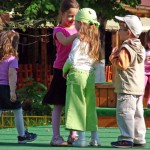 “Want Your Child to Learn Self-control? First, Teach Self-validation” — Early childhood mental health consultant Denise Durkin of Pennsylvania, USA, explores how to teach self-validation to our children:
“Want Your Child to Learn Self-control? First, Teach Self-validation” — Early childhood mental health consultant Denise Durkin of Pennsylvania, USA, explores how to teach self-validation to our children:
“The thing is, we really need to see our child and listen to him (or her). We cannot try to make him fit into an old ideal of how he ‘should’ behave, act or be. We must meet him ‘where he’s at’ and start there. Our goal is that we use and teach skills sets containing ‘ways of thinking and doing’ to support children in being themselves throughout the trajectory of their lives.”
December
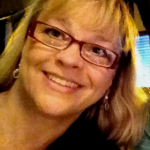 “You Never Stop Growing Up” — API Resource Advisory Council member, AP journalist and mother of 1, Lisa Reagan shares what it’s like watching her son getting ready to leave home and move out on his own, after 17 years of Attachment Parenting:
“You Never Stop Growing Up” — API Resource Advisory Council member, AP journalist and mother of 1, Lisa Reagan shares what it’s like watching her son getting ready to leave home and move out on his own, after 17 years of Attachment Parenting:
“Because of following the attachment model, I got my needs met to mother him, and there is nothing hanging on now. I did it. I met my needs to be his mother, and I met his needs, and it’s a completed thing now.”
 “What’s the Harm in Saying ‘There Are Starving Kids in Africa’ to Get Your Child to Eat His Veggies?” — Community psychologist and mother, Tamara Brennan of Mexico explains what she heard, as a 3 year old, when told to eat her vegetables and be grateful:
“What’s the Harm in Saying ‘There Are Starving Kids in Africa’ to Get Your Child to Eat His Veggies?” — Community psychologist and mother, Tamara Brennan of Mexico explains what she heard, as a 3 year old, when told to eat her vegetables and be grateful:
“How did it happen that they had no food in their house? Where were their parents? Were they going to die? It was very upsetting to consider their plight, the circumstances of which were beyond my ability to imagine. I did not feel like eating. I can still remember the sense of urgency I felt the next morning.”
 “8 Ideas to Holiday Gift-giving to Cultivate More Connection” — API Leader and mother of 2, Emily Van Bogaert of Kentucky, USA, offers tips to reclaim the holiday season for family connection rather than giving in to the pressures of consumerism:
“8 Ideas to Holiday Gift-giving to Cultivate More Connection” — API Leader and mother of 2, Emily Van Bogaert of Kentucky, USA, offers tips to reclaim the holiday season for family connection rather than giving in to the pressures of consumerism:
“Giving gifts can feel magical for both the giver and the receiver, and we absolutely can and should share our bounty with one another. But as we give gifts and spread joy, let’s use the occasion to be intentional and celebrate who and what actually matters most to us.”
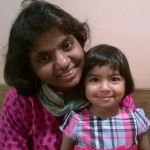 “And We Said Bye-Bye to Breastfeeding” — Mother to 1, Diya Singh of Oregon, USA, shares her child-led weaning story:
“And We Said Bye-Bye to Breastfeeding” — Mother to 1, Diya Singh of Oregon, USA, shares her child-led weaning story:
“My 3-1/2-year-old daughter and I said bye-bye to our breastfeeding relationship on a very happy note. Here is how it worked for us.”
*2015 graphic source: Free Images.com/Christian Ferrari
Editor’s note: This week, Feb. 14-20, is Random Acts of Kindness Week, an observance created by the Random Acts of Kindness Foundation that is right in line with the values espoused by Attachment Parenting International (API) families, local API Leaders and volunteers who practice kindness every day by following the third of API’s Eight Principles of Parenting: Respond with Sensitivity.

